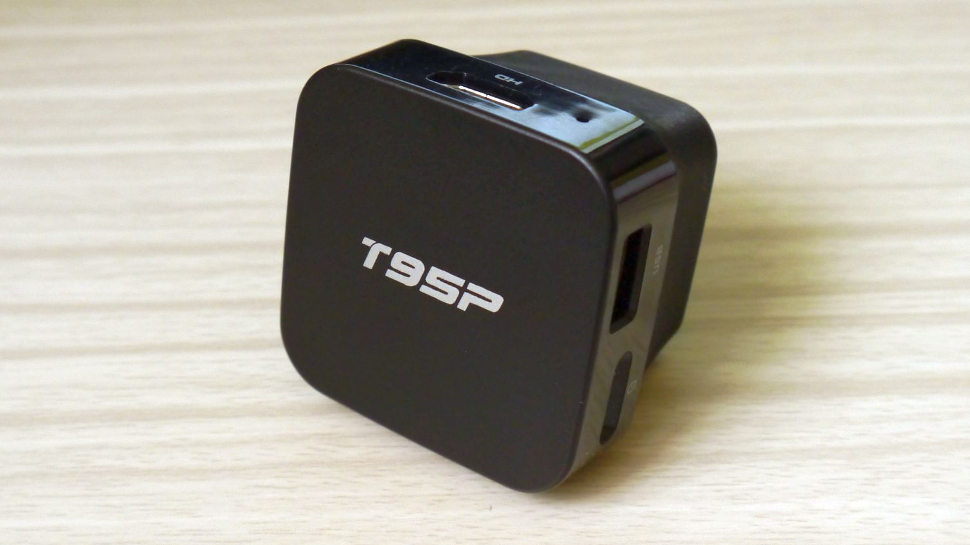Early Verdict
This device is great on paper, but it could do a bit better in terms of real-world performance. That said, potential Wi-Fi connectivity issues are the only major let-down in an altogether promising package.
Pros
- +
Promising form factor
- +
Decent performance
Cons
- -
Wi-Fi performance can be very poor
- -
No Bluetooth
Why you can trust TechRadar
The past decade has seen a number of manufacturers attempt to squeeze a working computer into a plug. Marvell kick-started the trend with the Linux-based SheevaPlug and Quanta almost did it with the Windows-powered Compute Plug.
But we have yet to see one based on Android; until now, that is. Meet the Sunvell T95P, a TV Box that is housed in an enclosure barely bigger than a traditional plug. Available with a US, UK or EU plug, it connects directly to your plug socket and, well, just works.
All three versions cost around £39 (about $50, AU$65) with free shipping at online Chinese retailer Gearbest. Note that this price is exclusive of any taxes that may be levied by HMRC or the courier companies on behalf of the vendor. Want to buy tech from online Chinese retailers? Read this first.

The PC-in-a-plug is sold as a TV box, but there is far more to it than just running the popular Kodi application. It comes with an HDMI cable and a remote control, a clear indication of how its manufacturer expects the device to be used.
Obviously enough, its size (53 x 53 x 68mm) means the T95P can find its way into almost any location where there’s a free power socket, which in theory includes hotel rooms and even offices where its price should prove to be attractive.
Bear in mind though that this is first and foremost an Android-based TV box with a proprietary, non-customisable launcher that sits atop Android 6.0.1. Curiously, there are two update applications, neither of which work.
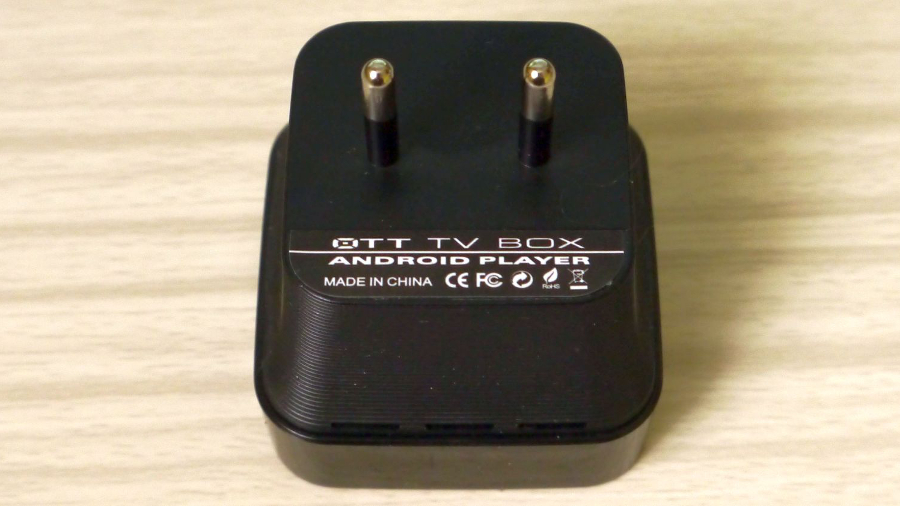
The T95P is based on an Amlogic S905X system-on-a-chip, a popular chip that features four ARM Cortex-A53 cores clocked at up to 2GHz and a Mali 450 GPU. Power dissipation/consumption is a trivial problem with an always-plugged-in device, and when running, this tiny PC was barely warm to the touch.
It has 2GB of RAM, 8GB on-board storage and a microSD card slot that supports up to 32GB. Other than 802.11n Wi-Fi, it offers one USB 2.0 port and an HDMI connector that supports 4K at 60Hz, a claim that was successfully tested. Note that there is no Bluetooth.
The design of the box can best be described as conservative. There’s nothing particularly notable about the device, except for some slits on the side to allow air circulation to cool the chip inside. Other than the logo, there’s nothing much to be seen on the outside.
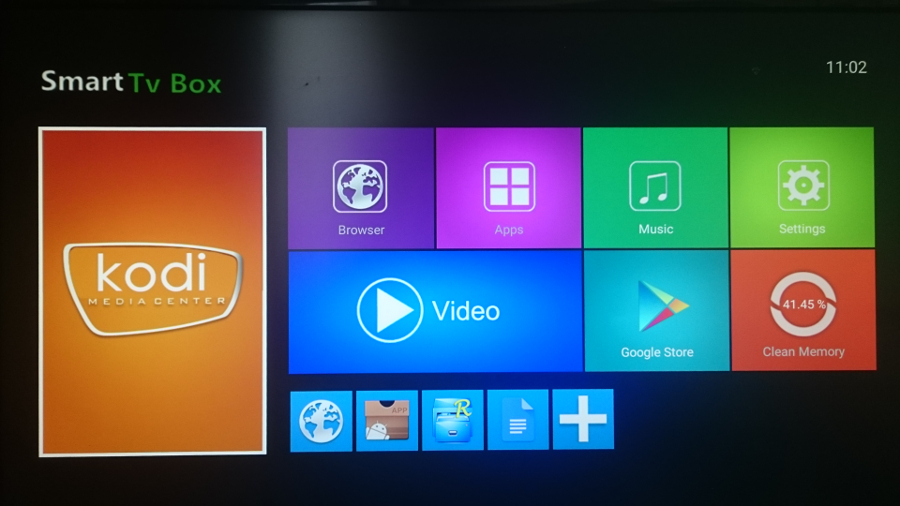
Although the T95P is pitched as a TV box (or more precisely an OTT TV Box Android Player), we wanted to find out how it would perform as a business desktop replacement. Connecting our TeckNet X500 keyboard with integrated touchpad was flawless. That said, it did take some time to acclimatise to using this input peripheral on something that’s designed primarily for a touch-first environment.
On paper, the combination of a decent amount of memory with a multi-core system-on-a-chip and a recent operating system makes the T95P a reasonably potent desktop alternative, and an attractive proposition for small businesses.
But in this respect, the reality of the experience was a big disappointment initially. We first placed the blame squarely on the shoulders of terrible Wi-Fi connectivity, with speeds of around 0.25Mbps recorded during our testing. We could live with the unfriendly user interface, but this snail-paced internet access would drive even the most patient user up the wall.
However, the real culprit here wasn’t the Wi-Fi hardware itself, but the placement of the device. We created a hotspot using a 4G-capable smartphone, placed it next to the T95P and got 21Mbps out of a potential 25Mbps – and the experience improved dramatically.
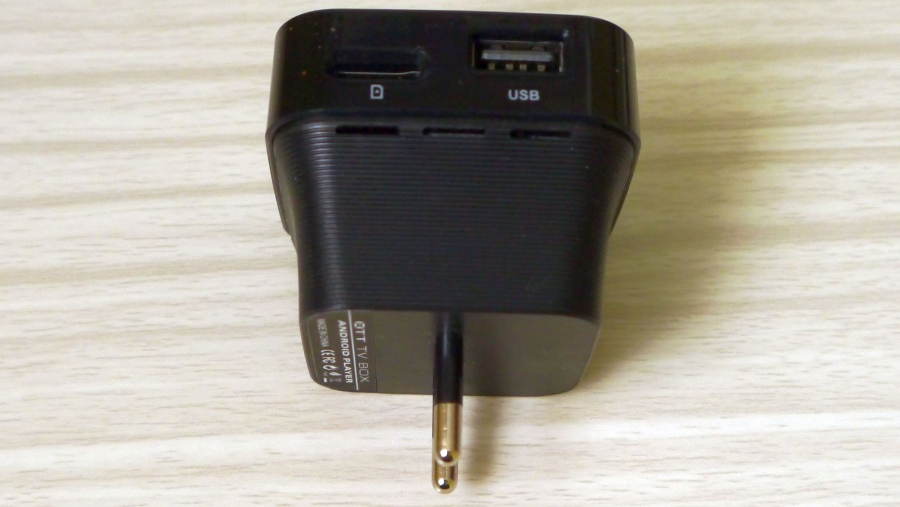
Total available internal storage was less than 5GB and that can be explained by the presence of a number of pre-installed applications, all of which can be removed. AppInstaller, Root Explorer, Skype, Netflix and even Kodi can be deleted to make room for more business-oriented applications.
Running on Android rather than say Chrome OS or Windows allows you to tap into a much larger pool of applications, free or paid, rather than depending entirely on a browser-based solution. There will be a learning curve, though, as the UI on these apps will be different from their desktop-based cousins.
Writing documents, browsing the web or producing a simple spreadsheet on the T95P proved to be easy enough to consider it as a low-end machine. Bear in mind that this is a £40 (about $50, AU$65) device that can be carried in your back pocket (well, almost).
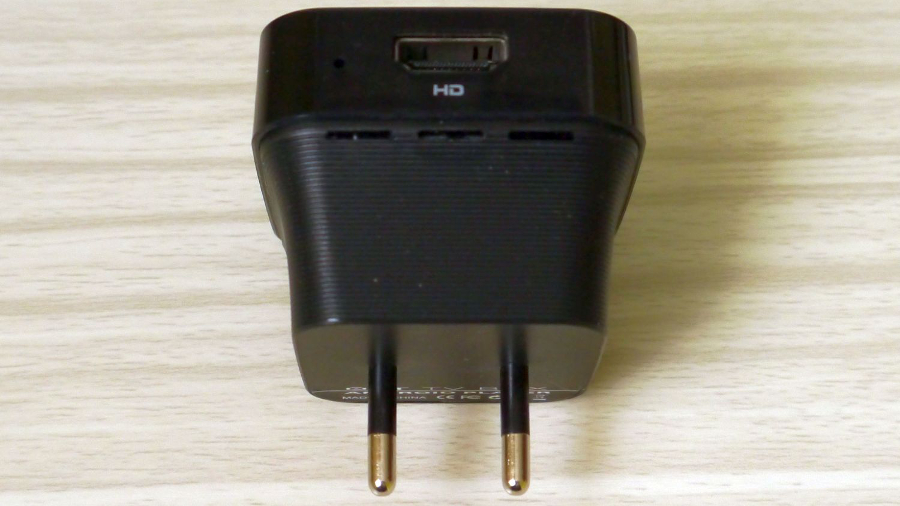
Early verdict
The T95P offers solid performance – provided it is located in the right place – and the form factor is promising. We’d love to see one with a passthrough plug and more ports (an Ethernet connector would be smashing), also perhaps with the ability to be powered via a USB port.
One problem we had was the fact that the launcher is designed primarily to be controlled using the bundled remote, not a keyboard and mouse.
Competition obviously comes from traditional TV boxes like Sunvell’s own T95X, which is essentially the same model, but it costs less and boasts an improved feature set (LAN port, extra USB port) and a power supply unit. A tablet with an HDMI-out port could potentially do the same job, especially when paired with a portable battery charger, but these are becoming rarer.
If you can live with all these considerations, alongside the not-so-great Chinese translation of the user interface, and potential placement issues (most plug sockets are located behind pieces of furniture), then the T95P is a great purchase even for businesses. Although some folks might want to wait for the next iteration or other competitors to adopt this form factor.
- These are the best business desktop PCs of 2017

Désiré has been musing and writing about technology during a career spanning four decades. He dabbled in website builders and web hosting when DHTML and frames were in vogue and started narrating about the impact of technology on society just before the start of the Y2K hysteria at the turn of the last millennium.
What is a hands on review?
Hands on reviews' are a journalist's first impressions of a piece of kit based on spending some time with it. It may be just a few moments, or a few hours. The important thing is we have been able to play with it ourselves and can give you some sense of what it's like to use, even if it's only an embryonic view. For more information, see TechRadar's Reviews Guarantee.
